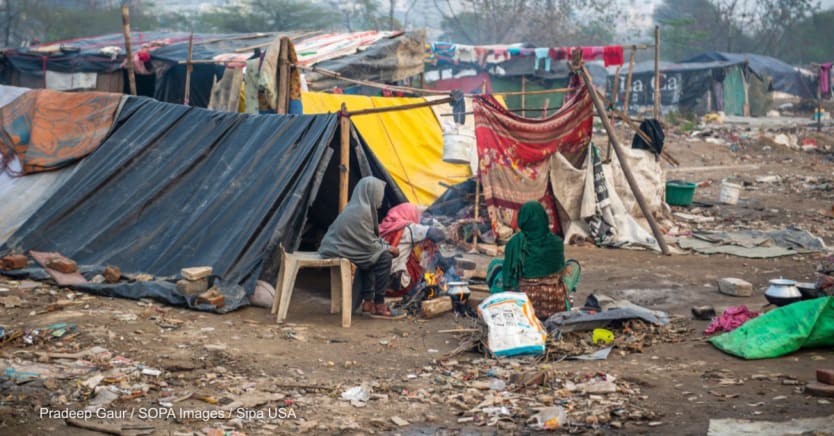
Global inequality has contributed to the deaths of at least 21,300 people every day, according to an Oxfam report.
Oxfam said the deaths — which it declared a “conservative” estimate — were caused by “hunger in a world of plenty, the denial of access to quality healthcare in poor countries, and gender-based violence faced by women,” along with climate “breakdown.”
The report branded inequality as “economic violence” because “structural and systemic policy and political choices that are skewed in favor of the richest and most powerful people result in direct harm to the vast majority of people around the world.”
Poverty has increased across the world, with over 160 million more people surviving on less than $5.50 per day than before the pandemic and social protections decreasing as governments struggle with more COVID-19-related debt, said the report. Last September, the United Nations warned that lower-income countries would lose $12 trillion to the economic damage wrought by the pandemic.
“Even during a global crisis our unfair economic systems manage to deliver eye-watering windfalls for the wealthiest but fail to protect the poorest.”
— Dhananjayan Sriskandarajah, CEO, Oxfam GBWomen were particularly badly affected by economic troubles related to COVID-19, collectively losing $800 billion in income in 2020 as the female workforce fell by 13 million worldwide.
Inequality has also been compounded by inequitable access to COVID-19 vaccines, which Oxfam blamed on “rich governments’ protection of pharmaceutical corporations’ monopolies.”
But the world’s ten richest billionaires became wealthier during the pandemic than in the combined previous 14 years, doubling their wealth from $700 billion to $1.5 trillion, the analysis found. The collective wealth of the world’s 2,755 billionaires increased by $5 trillion, according to the report.
“Even during a global crisis our unfair economic systems manage to deliver eye-watering windfalls for the wealthiest but fail to protect the poorest,” said Oxfam GB CEO Dhananjayan Sriskandarajah. “It is an avoidable tragedy that every day people die because they lack essentials such as food and healthcare.”
The report made a number of recommendations to governments, including higher taxes on billionaires, waiving intellectual property rules for COVID-19 vaccines, ending laws that discriminate against women, and strengthening workers rights.
Sriskandarajah said: “Today’s generation … should make sure that Covid-19’s long-term legacy is quality universal healthcare and social protection for all. Governments have an historic opportunity to back bold economic plans based on greater equality that change the deadly course we are on.”








